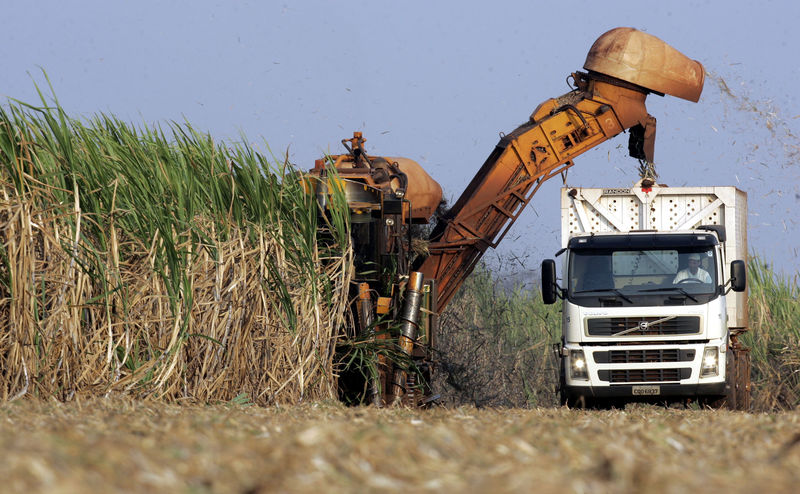By Marcelo Teixeira
SAO PAULO (Reuters) - An expected increase in ethanol demand in Brazil, boosted by the country's economic recovery and a new programme to raise biofuel use, will initially be met by fuel produced from corn, an industry official told Reuters on Thursday.
Ricardo Tomczyk, who heads Brazil's newly created National Union for Corn Ethanol (UNEM), said the product has a key advantage over cane-based ethanol: Production capacity can be added quickly.
"There are no cane fields available in Brazil currently. A company would take some four years to form a new cane field ready for production," Tomczyk said, adding that in the case of corn-based ethanol, it would be a matter of building the plant, which would take around a year and a half.
Ethanol sales are rising in Brazil as its price advantage over gasoline increases. Hydrous ethanol sales, the type used as a substitute for gasoline in flex fuel cars, were 33 percent higher in November compared to the same month a year earlier.
Another factor fuelling ethanol demand is the RenovaBio, a federal programme to increase biofuels use. Government officials are currently fine-tuning regulations, which will set emissions reduction targets for fuel distributors that will be met by increasing trading volumes of ethanol.
The government expects demand for ethanol to double by 2030. RenovaBio should be operational in 2020.
Almost all ethanol produced in Brazil comes from sugar cane, but some corn-based plants started operations recently and more should soon come online, Tomczyk said, particularly in the centre-west state of Mato Grosso where corn supplies are ample and prices low.
One plant expansion and four new facilities have been announced in the last weeks. Three out of the four new projects will be attached to existing cane mills. There are synergies if plants are operated together, such as the use of biomass from cane processing for energy generation.
"Mato Grosso should be producing some 3 or 4 billion litres per year of corn ethanol in five years, from around 400 million litres currently," said Tomczyk.
Tomczyk says DDG (distiller's dried grain), a by-product from corn-based ethanol plants used for animal feed, will bring in additional revenue from the new projects since Mato Grosso is home to Brazil's largest cattle herd with 30 million head.

He expects Mato Grosso to sell future ethanol production to neighbouring centre-west states, as well as to northern areas such as Pará.